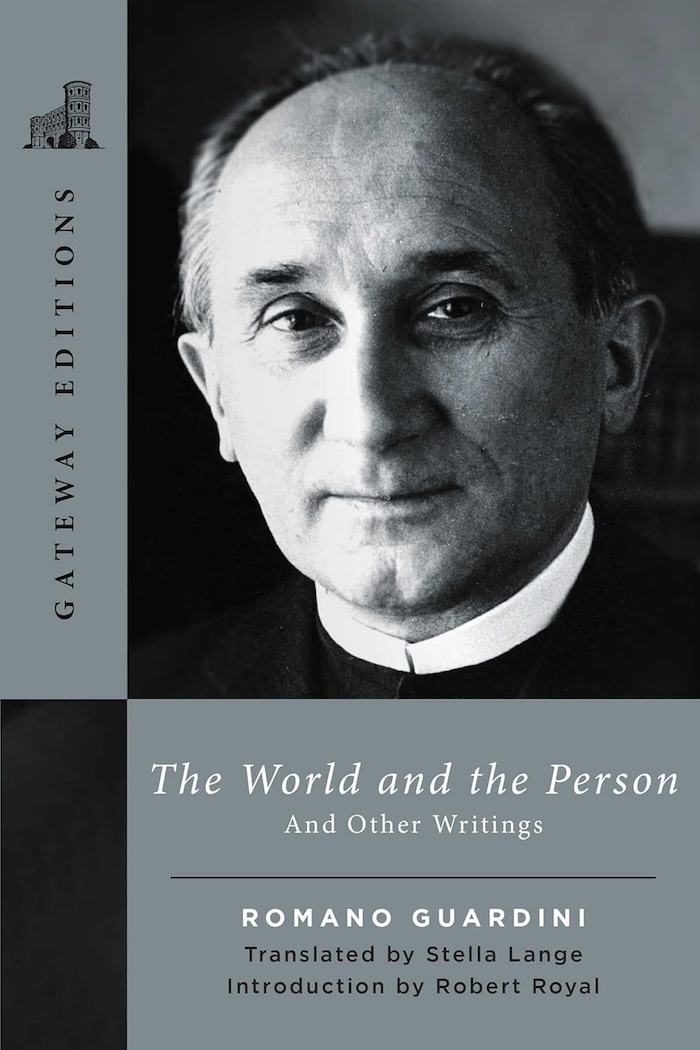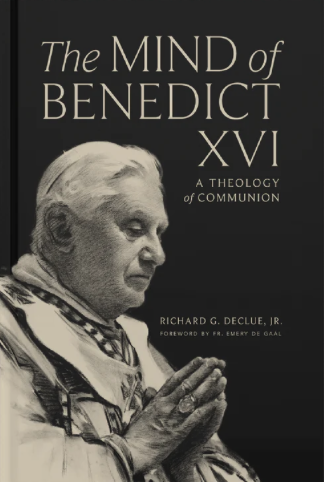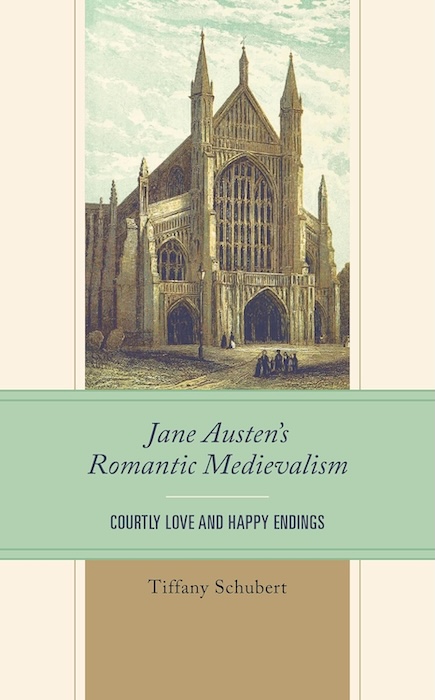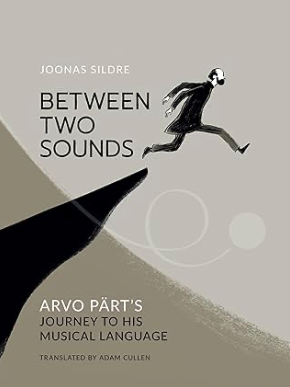PREVIEW
Guests heard on Volume 164

Dana Gioia, translator of Sentences of Seneca, on Seneca’s practical wisdom

Brady Stiller, author of Your Life Is a Story: G. K. Chesterton and the Paradox of Freedom, on the grand cosmic story

Robert Royal discusses Romano Guardini’s The World and the Person, And Other Writings

Richard DeClue, author of The Mind of Benedict XVI: A Theology of Communion, on the former pope’s priority on relationality

Tiffany Schubert, author of Jane Austen’s Romantic Medievalism: Courtly Love and Happy Endings, on 18th-century cultural superiority

Joonas Sildre, author of Between Two Sounds: Arvo Pärt’s Journey to His Musical Language, on illustrating Pärt’s music
Related reading and listening
- Manners and morals —
FROM VOL. 19 Film and literary critic Alan Jacobs discusses how modern audiences relate to the manners and morals portrayed in Jane Austen films. (16 minutes) - Awakening before what is great — Romano Guardini on the proper posture of one in the presence of greatness
- The hatred of logos — D. C. Schindler draws on Plato to argue that in its very form, social media evidences a general contempt for logos — reason and language — which defines man. (26 minutes)
- Speaking the word in love — In this lecture, D. C. Schindler examines core insights from Ferdinand Ulrich on the central vocation of man and the meaning of being. (32 minutes)
- The profound drama of human sexuality — In this lecture, D. C. Schindler explains the cosmological significance of human sexuality and why it is paradigmatic of the relationship between nature and freedom. (32 minutes)
- Personhood and the gift of the self — In this lecture, D. C. Schindler examines the concept of self-gift which was central to Karol Wojtyła’s thought. (39 minutes)
- Sacramental Poetics — Poet and Eastern Orthodox believer Scott Cairns explains how a good poem functions like an icon: it assists the process of our becoming aware of what is real, and it is generative in the ways it keeps opening up new understandings. (56 minutes)
- Schubert, Tiffany — FROM THE GUEST PAGE: Tiffany Schubert is Associate Professor of Trivium and Humanities at Wyoming Catholic College.
- Seeing Creation Anew: The Life & Poetry of Gerard Manley Hopkins — Dana Gioia examines Gerard Manley Hopkins‘s poetic genius and dedication to Christ in spite of his personal trials and difficult cultural context. (55 minutes)
- To see people as people — Anthony Bradley argues that a recovery of Christian personalism is needed to counter the dehumanization, polarization, and tribalism of our day. (45 minutes)
- The idiom for the revelation of mystery — Dana Gioia on the foundational place of poetry in Christian faith
- Breaking the frozen sea — Dana Gioia on how poetry enchants
- Seneca’s moral courage — Dana Gioia explains how Seneca’s family was interwoven with the Roman governing class, ultimately leading to the philospher’s death at the hands of Emperor Nero. (27 minutes)
- John Donne’s Passion in Life, Faith, & Verse — Poet Dana Gioia discusses the remarkable life of poet John Donne and how his spiritual and intellectual struggles created the conditions for his unique poetic voice. (53 minutes)
- The importance of literary reading —
FROM VOL. 70 Dana Gioia discusses the important role literary reading plays in society and the 2004 publication from the NEA about such reading. (13 minutes) - Longfellow’s appeal —
FROM VOL. 53 Poet and critic Dana Gioia explains why Henry Wadsworth Longfellow (1807-1882) is one of the three great American poets. (30 minutes) - Sacramental correspondence —
FROM VOL. 51 Poet Dana Gioia discusses the state of contemporary poetry and the sacramental relationship between language and reality. (15 minutes) - Stiller, Brady — FROM THE GUEST PAGE: Brady Stiller was the first researcher to study materials of the G.K. Chesterton Collection at its new home at the Notre Dame London Global Gateway in the U.K.
- DeClue, Richard — FROM THE GUEST PAGE: Richard G. DeClue, Jr., S.Th.D. is Professor of Theology at the Word on Fire Institute, where he leads the Theology for Evangelists Community.
- The grotesque and the transcendent — Christina Bieber Lake on why Flannery O’Connor’s readers have to work
- St. Thomas the anthropologist — G. K. Chesterton on Aquinas’s complete Science of Man
- Economics and personhood —
FROM VOL. 147 Mary Hirschfeld argues that modern economics makes some fundamental assumptions about personhood, material goods, and God that prevent the development of a truly human understanding of economic life. (20 minutes) - Etiquette and ethics — In this essay, Judith Martin (a.k.a. Miss Manners) argues that etiquette is “civilization’s first necessity” and an indispensable societal virtue. (21 minutes)
- The need to recollect ourselves as whole persons — In this 2016 lecture, John F. Crosby explores key personalist insights found in the thinking of John Henry Newman and Romano Guardini. (60 minutes)
- The corruption of the word and the displacement of reality — Josef Pieper on the devastating effects of manipulative speech
- The transforming power of false divinities — Romano Guardini on the danger of becoming like the gods we invent
- A richer, deeper view of human dignity —
FROM VOL. 98 Moral philosopher Gilbert Meilaender examines the question of human dignity and its place within political discourse. (25 minutes) - What it means to be a person —
FROM VOL. 147 Sociologist Craig Gay argues that in order to address the challenges of a technological approach to the world, we need to recover the Christian tradition’s robust theology of personhood. (24 minutes) - Voluntarily silencing ourselves —
FROM VOL. 39 John L. Locke discusses the value of personal communication and how technology is displacing it. (12 minutes) - Music, silence, and the order of Creation — In this lecture, Ken Myers explains how it is that our participation in harmonic beauty in music is a kind of participation in the life of God, in Whom all order and beauty coheres and is sustained. (61 minutes)
- Angelic voices: saying or singing? — Pope Benedict XVI on the intrinsically musical character of angelic utterance
- Seven Messianic titles, seven attributes of Christ — Ken Myers introduces listeners to four composers who each have set all seven of the O Antiphons to music. (17 minutes)
- What is lost with labor-saving devices — Romano Guardini on what is lost when cultural pursuits eclipse natural order
- Faith that is more than “chemically pure” — Romano Guardini on sustaining a Christian understanding of all of Creation
- The (super)natural theology of fairy-tales — Alison Milbank describes Chesterton’s belief that story-telling is an affirmation of transcendent meaning
- The physical beauty of music — Music can be likened to a cathedral, says professional guitarist Gordon Kreplin, when it creates through silence and sound a meditative space into which one may enter and encounter God. (14 minutes)
- Music and the meaning of Creation — In this 2018 lecture, Ken Myers advocates for a recovery of the pre-Enlightenment idea of the intelligibility of music. (61 minutes)
- Counterpoint as a “spirited discussion” — In this essay, John Ahern explains the beauty and order of counterpoint, the accumulation of multiple melodies that come together in a harmonious whole. (20 minutes)
- Good stewardship of language — Marilyn Chandler McEntyre discusses central themes from her 2009 book, Caring for Words in a Culture of Lies. ALSO: clips from 6 other programs about language. (36 minutes)
- The Bully Pulpit: Presidential Rhetoric and True Leadership — Elvin Lim talks about the decline of the content of presidential rhetoric and its consequences to democracy. (49 minutes)
- When language is weaponized —
FROM VOL. 52 Jeffrey Meyers explains George Orwell‘s understanding of how language can be used as a weapon in totalitarian movements and regimes. (10 minutes) - The Decline of Formal Speech and Why It Matters — John McWhorter examines the reasons behind the decline in articulate speech and writing in the late 20th century, and the implications of this change across many areas of culture. (55 minutes)
- Multi-leveled language and active spiritual engagement —
FROM VOL. 95 Eugene Peterson talks about how Jesus spent most of his time speaking normally and conversationally, and how the Spirit infused this normal speech. (14 minutes) - How words are central to the human experience —
FROM VOL. 95 Craig Gay reflects on the essential linguistic nature of humanity: how our growth (or decline) in life is tied to words. (18 minutes) - Diverting language from its richest possibilities —
FROM VOL. 75 Steve Talbott discusses the rich capacities of language and how technology diminishes them. (18 minutes) - Courtesy as a theological issue —
FROM VOL. 37 Donald McCullough discusses his insights into the increasingly coarse nature of society and the theological foundations for courtesy. (12 minutes) - A metaphysics of realism, relationality, and personalism — John Milbank gives a survey and critique of the efforts of 20th and 21st century theologians to articulate a Trinitarian ontology that reflects reality and counters secularization. (61 minutes)
- Torrential winds of doctrine — Joseph Cardinal Ratzinger on the “dictatorship of relativism”
- Why liberalism tends toward absolutism — In this lecture, Michael Hanby examines what causes liberalism to become dictatorial in thought and practice. (49 minutes)
- Mars Hill Audio Journal, Volume 162 — FEATURED GUESTS: Mark Noll, R. Jared Staudt, Paul Weston, William C. Hackett, Hans Boersma, and David Paul Baird